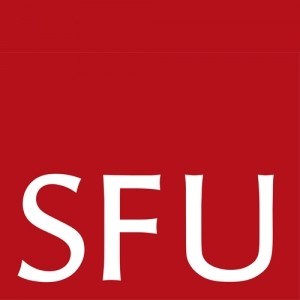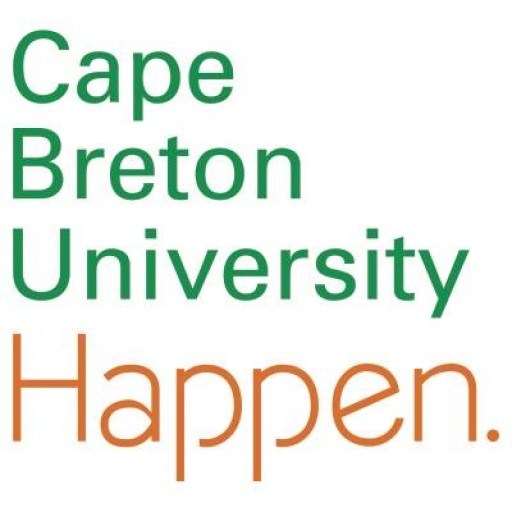Photos of university / #simonfraseru
Description:
The Bachelor of Arts in Communication at Simon Fraser University offers students a comprehensive and in-depth understanding of the fundamental principles, theories, and practices involved in the field of communication. This interdisciplinary program combines insights from sociology, media studies, cultural studies, and psychology to provide students with a well-rounded perspective on how human communication shapes societies, cultures, and individual experiences. Throughout their studies, students will explore various topics including media analysis, interpersonal communication, mass communication, digital media, public relations, and intercultural communication, equipping them with the critical-thinking skills necessary for analyzing and engaging with contemporary media environments.
The program emphasizes experiential learning, allowing students to apply theoretical knowledge through hands-on projects, internships, and collaborative research. This prepares graduates for diverse careers in media and communication industries, including journalism, advertising, public relations, corporate communication, digital media production, and community engagement. Faculty members are renowned experts in their fields, committed to fostering an inclusive learning environment that encourages innovation and critical inquiry. The curriculum also includes opportunities for students to develop professional skills such as effective writing, verbal communication, data analysis, and media literacy. With its flexible course options and focus on contemporary issues, the Communication program at Simon Fraser University prepares students to become thoughtful, adaptable, and ethically responsible communication professionals capable of contributing meaningfully to a rapidly changing global media landscape.
The Bachelor of Arts in Communication at Simon Fraser University offers students a comprehensive understanding of the fundamental theories, concepts, and practices involved in the process of human communication. This program is designed to equip students with critical thinking, effective communication skills, and an interdisciplinary perspective that prepares them for diverse careers in media, public relations, advertising, journalism, corporate communication, and related fields. The curriculum covers a broad range of topics including media studies, intercultural communication, communication technologies, rhetoric, and the social impact of communication practices. Students will explore how communication shapes societies, influences behavior, and drives technological change. The program emphasizes both theoretical knowledge and practical skills, encouraging students to analyze and create media content, develop strategic communication plans, and engage in research projects. Through lectures, seminars, case studies, and hands-on projects, students gain insights into the ethical and social responsibilities associated with communication professions. The degree also offers opportunities for experiential learning through internships and collaborative projects with industry partners, enhancing students' readiness for the workforce. Additionally, students are encouraged to develop a critical awareness of media literacy and digital communications, preparing them to navigate and shape the rapidly evolving communication landscape. The program fosters a multicultural understanding of communication issues, reflecting the diverse and dynamic environment of Vancouver and the broader global context. Graduates of the Bachelor of Arts in Communication are well-equipped to pursue further education or to enter the workforce in roles that require strong analytical, creative, and interpersonal skills within dynamic communication environments.
The Bachelor of Arts in Communication at Simon Fraser University requires students to complete a total of 120 housing credits, including both core and elective courses. The program is designed to provide students with a comprehensive understanding of the fundamental principles of communication across various contexts, including media, interpersonal, organizational, and cultural communication. Students must complete foundational courses such as Introduction to Communication, Media and Society, and Research Methods in Communication to build critical analysis and research skills. Elective courses allow students to specialize in areas like digital media, journalism, public relations, or intercultural communication, enabling customization of their academic pathway to align with career interests. The program emphasizes experiential learning through opportunities like internships, projects, and research, fostering practical skills applicable to diverse professional environments. To graduate, students are typically required to maintain a minimum cumulative GPA, fulfill general university requirements, and complete at least 30 upper-division credits within the major. The curriculum is regularly reviewed to ensure relevance with current communication trends and technologies, preparing graduates for careers in media, advertising, corporate communication, education, and other related fields. Students are encouraged to participate actively in campus events, workshops, and seminars related to communication to enhance learning and networking opportunities. The program also offers pathways for further education, including honors and graduate studies for highly performing students. Overall, the Communication program at Simon Fraser University aims to develop critical thinkers, effective communicators, and socially responsible professionals equipped with the theoretical knowledge and practical skills necessary to succeed in a rapidly evolving media landscape.
Want to improve your English level for admission?
Prepare for the program requirements with English Online by the British Council.
- ✔️ Flexible study schedule
- ✔️ Experienced teachers
- ✔️ Certificate upon completion
📘 Recommended for students with an IELTS level of 6.0 or below.
The financing of Communication programs at Simon Fraser University is primarily supported through a combination of scholarships, bursaries, financial aid, and work opportunities available to students. Prospective students are encouraged to explore various internal and external funding options to help finance their education. The university offers numerous merit-based scholarships for incoming and continuing students who demonstrate academic excellence, leadership, or contribution to the community. These scholarships vary in amount and eligibility criteria, and students are advised to review the specific requirements and application deadlines on the university's official website.
In addition to university-specific awards, students can access government financial aid programs such as student loans and grants, which are available for Canadian citizens and permanent residents, subject to eligibility. These financial aid options aim to reduce the financial barriers to completing higher education and are administered through the provincial government and federal agencies. International students, who also enroll in various Communication courses, are usually required to demonstrate sufficient financial resources to cover tuition fees and living expenses, as per immigration regulations.
Part-time employment opportunities are available on campus and off campus, allowing students to finance their studies while gaining practical experience in their field of interest. The university's co-op programs, available within certain Communication courses, provide paid work placements that help students build their professional networks and earn income simultaneously. Furthermore, students are encouraged to seek external funding sources such as private scholarships, industry sponsorships, and external awards related to media, communication, and related fields.
Funding strategies also include budgeting and financial planning workshops offered by the university's Student Services Centre. These resources assist students in managing their finances effectively throughout their studies. It is advisable for students to start applying early for available scholarships and financial aid opportunities, as early application increases chances of securing funding. Overall, the financing landscape for Communication students at Simon Fraser University is designed to support students financially through a diverse array of funding mechanisms, enabling them to focus on their academic and career development without undue financial burden.
The Bachelor of Arts in Communication at Simon Fraser University is a comprehensive program designed to provide students with a deep understanding of how communication shapes society, culture, and individual experiences. This program combines theoretical frameworks with practical applications, equipping students with critical thinking, analytical skills, and effective communication techniques essential for diverse careers in media, public relations, advertising, journalism, and other related fields. The curriculum typically covers core areas such as media studies, rhetorical analysis, intercultural communication, digital communication, and media production. Students have opportunities to engage with contemporary issues like media ethics, technological change, and the influence of digital platforms on communication practices. The program emphasizes experiential learning, encouraging students to undertake internships, projects, and research that connect classroom theories to real-world scenarios. Additionally, SFU’s vibrant campus offers students access to cutting-edge media labs, collaborative workspaces, and a dynamic community of scholars and industry professionals, fostering creative and professional development. Graduates of the program are prepared to enter various sectors, including media organizations, corporate communications departments, government agencies, and non-profit organizations. The program aims to develop not only technical proficiency but also an understanding of the social and cultural implications of communication practices. It promotes an inclusive learning environment that values diversity and encourages interdisciplinary approaches. By completing this degree, students enhance their ability to analyze media messages critically, develop compelling communication strategies, and adapt to the rapidly changing landscape of digital media industries. Overall, SFU’s Communication program prepares students for meaningful careers by blending academic rigor with practical experience, ensuring they are well-equipped to succeed in the global communication arena.


